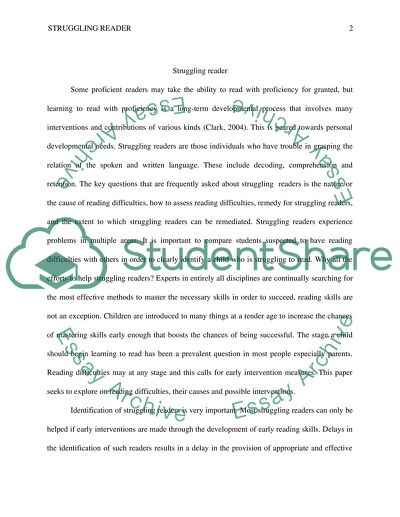Cite this document
(“Struggling Readers Essay Example | Topics and Well Written Essays - 2000 words - 1”, n.d.)
Retrieved de https://studentshare.org/education/1436596-struggling-readers
Retrieved de https://studentshare.org/education/1436596-struggling-readers
(Struggling Readers Essay Example | Topics and Well Written Essays - 2000 Words - 1)
https://studentshare.org/education/1436596-struggling-readers.
https://studentshare.org/education/1436596-struggling-readers.
“Struggling Readers Essay Example | Topics and Well Written Essays - 2000 Words - 1”, n.d. https://studentshare.org/education/1436596-struggling-readers.


